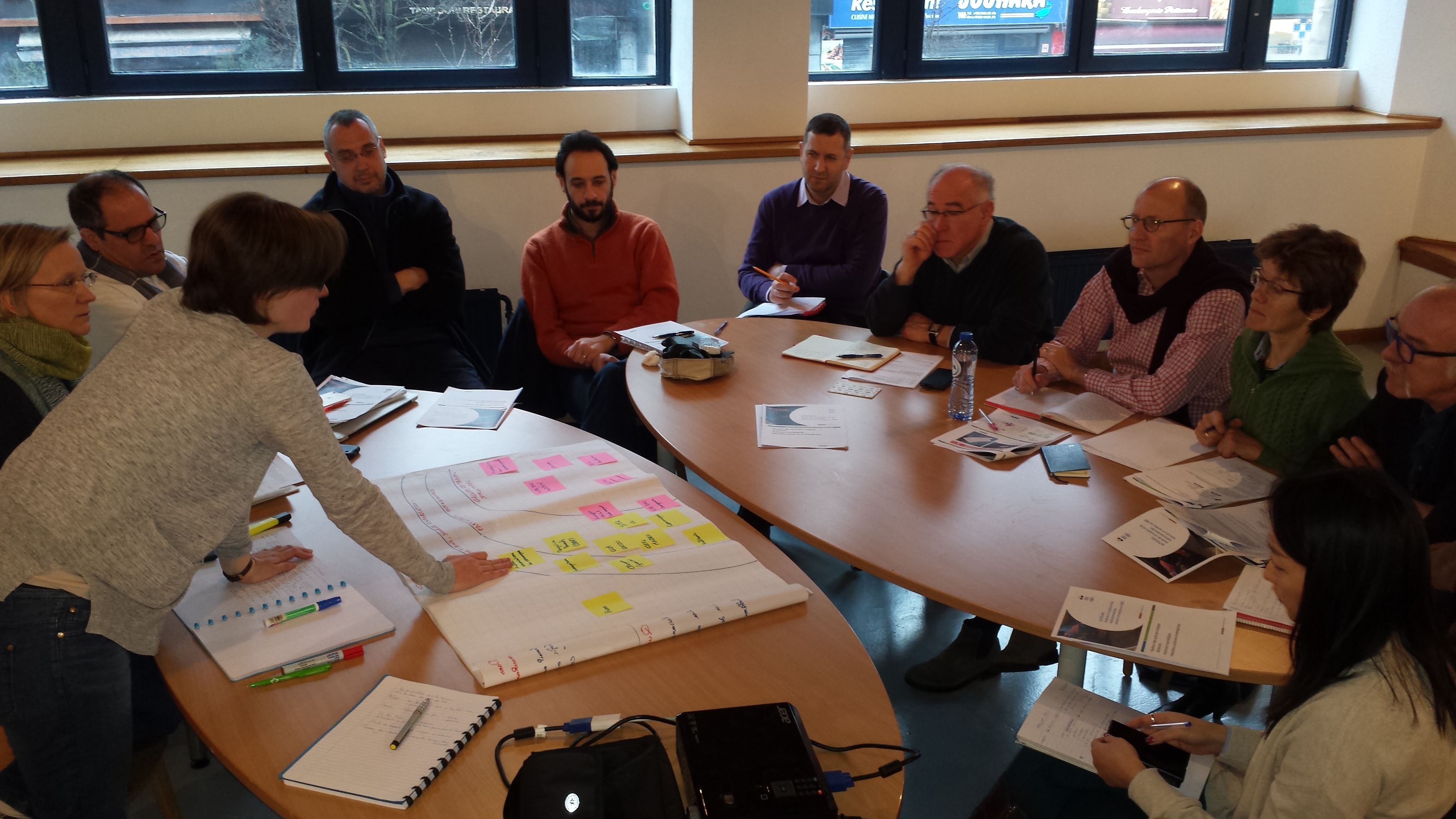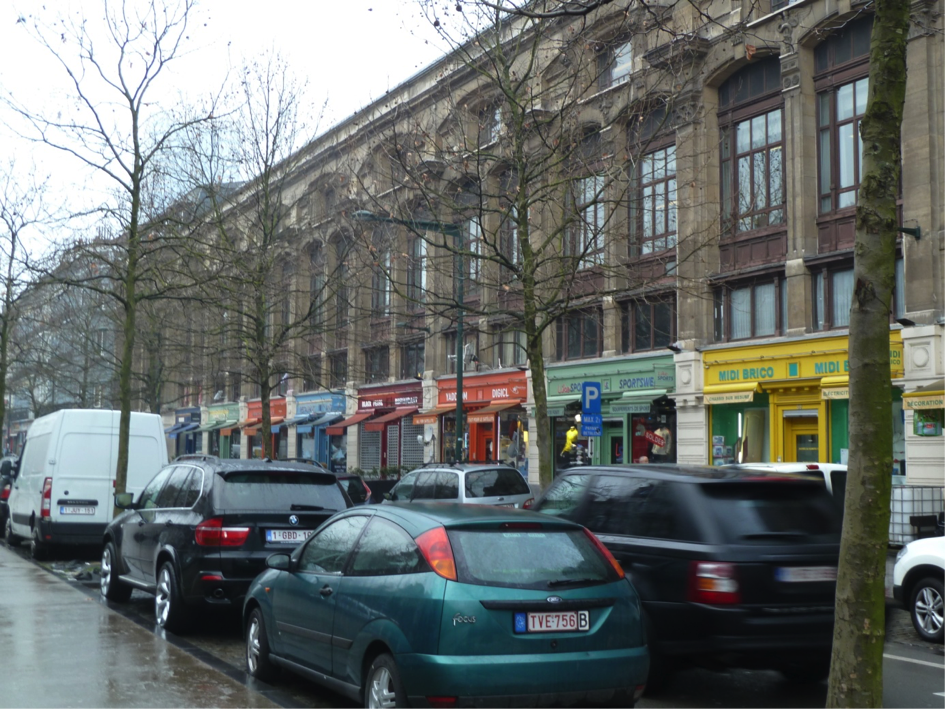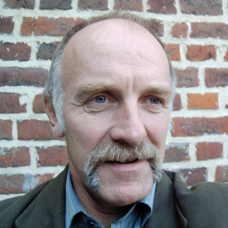Meet the team behind the award-winning ‘Strategic Plan for Goods Traffic in the Brussels-Capital Region’
Edited on
24 June 2019Marianne Thys, Christophe De Voghel and Charlotte Debroux are on a mission - to make the Brussels-Capital Region a model of sustainable and efficient urban freight transport. The Brussels Mobility Freight Team, partners in the URBACT network Freight TAILS, were therefore more than happy with the March announcement that the Brussels-Capital Region has been crowned winner of the 5th Sustainable Urban Mobility Planning Award. Within the framework of EUROPEANMOBILITYWEEK (2016), the EU Commission initiative rewarded Brussels for its commitment to long-term policies on sustainable freight, and for putting its approach into action with a “Strategic Plan for Goods Traffic in the Brussels-Capital Region”.
We caught up with the Brussels Mobility Freight Team to find out more about their work putting freight at the heart of efforts to improve sustainable urban transport, and their perspectives on the future.
What does winning the SUMP award mean for the Region and yourselves?

The Region is of course pleased that ongoing efforts to improve mobility in the European Capital are recognised in this way by the other member states, peer cities and beyond. It is especially positive that this year the Award acknowledges the integration of freight transport, a theme which has often been overlooked in discussions and in interventions tackling urban mobility issues. Brussels-Capital Region and Brussels Mobility is proud to occupy a position, with other leading EU cities, driving understanding, raising awareness and taking concrete action to improve and promote sustainable urban transport and distribution patterns. It also provides added motivation to progress further, seeking to explore innovative practices and introduce effective win-win solutions that are sustainable and efficient, now with other city partners in the URBACT Freight TAILS project.
Why did you decide to develop the “Strategic Plan for Goods Traffic”?
Freight transport is still often regarded as the “poor relation” in any consideration of mobility management. On the other hand distribution of goods and services is the equivalent of a vital blood supply sustaining the functioning of an agglomeration like Brussels and ensuring quality of life for its citizens. While freight transport only represents 10% of total traffic, it is estimated that it accounts for 30% of the negative impacts caused by transportation – particularly in terms of poor air quality, noise, congestion and road safety. Faced with the combination of a “do-nothing scenario” - forecasting exponential growth in goods traffic flows (80% increase by 2050) - and counter policy measures, air quality objectives, set out in the EU Transport White Paper (Roadmap for a single European transport area, 2011) for example, the time was ripe to adjust the Mobility Planning framework in the Region and give more attention to the urban freight transport challenge. In order to anticipate, integrate and sustainably organise the component of freight distribution in the city, Brussels Mobility initiated a process to engage with stakeholders and begin developing the strategic document which happily today has been acclaimed by the European Commission.
Of course the Brussels Mobility Freight Team couldn’t set and achieve strategic objectives on their own?
 From the outset it was realised that involving stakeholders would be an essential part of the process - from policy formulation to implementation of actions for change. Collaboration with the sector and with other concerned actors was instigated through a series of consultations designed to understand freight transport patterns in the city and assess needs and challenges to be met. Four participative workshops brought together private and public players in order to define a common vision and explore specific actions to be taken. Representatives - hauliers, shippers, retailers, logistics providers, public services, business and trade associations, research institutes, police, residents – were brought together to mine knowledge and experience, to discuss cross-cutting proposals and establish real priorities. A key partner during the inception phase and after has been impulse.brussels, the regional enterprise agency who have been instrumental in encouraging companies to develop smart logistics solutions and have supported implementation of actions.
From the outset it was realised that involving stakeholders would be an essential part of the process - from policy formulation to implementation of actions for change. Collaboration with the sector and with other concerned actors was instigated through a series of consultations designed to understand freight transport patterns in the city and assess needs and challenges to be met. Four participative workshops brought together private and public players in order to define a common vision and explore specific actions to be taken. Representatives - hauliers, shippers, retailers, logistics providers, public services, business and trade associations, research institutes, police, residents – were brought together to mine knowledge and experience, to discuss cross-cutting proposals and establish real priorities. A key partner during the inception phase and after has been impulse.brussels, the regional enterprise agency who have been instrumental in encouraging companies to develop smart logistics solutions and have supported implementation of actions.
This preparatory work, combined with assessment and diagnosis of the situation, and fruitful cooperation with the both Free Universities of Brussels (the Université Libre de Bruxelles and Vrije Universiteit Brussel), helped to establish the vision and the action plan.
So what are the activities set in motion as a result of the plan, and what actions are planned in the immediate future?
The Plan sets out 36 actions to be implemented from 2014 to 2020, collected around five priority axes: improving the organisation of the urban distribution structure; integrating urban distribution in land-use planning; improving efficiency of deliveries; collecting data and encouraging innovation; and developing a favourable regional framework. From 2013 to 2016, several actions have already been carried out. These have involved numerous public, private and academic partners at various local, regional or European levels. The principle of initiating Pilot Projects has been favoured in this respect to test solutions in practice and evaluate their performance - for instance in supporting the organisation of a consolidation centre operated by the City Depot company, or the organisation of night deliveries to two supermarket chains at five different locations, and the re-appointment and spatial adjustment of street or kerbside deliveries in the Avenue Louise...
A Freight forum has been created within the Regional Mobility Committee, drawing together a wide range of interested parties to accompany the sustainable logistics planning process. This body meets two to three times a year, providing feedback and input to inform decision-making and review results.
 Ongoing monitoring and evaluation is a key activity moving forward, continuing the assessment of the effects of logistics-sprawl for instance, traffic counts evaluating evolutions in freight flows, also using data gathered as a result of the vehicle charging system (HGVs over 3.5T since April 2016) now operating across the Region’s road network. The next challenge is now being addressed to establish a Recognition Scheme designed to foster good practice and favour transport companies who are doing the right things - for example reducing number of trips and emissions, mobilising training initiatives, respecting driver welfare and road safety prescriptions...
Ongoing monitoring and evaluation is a key activity moving forward, continuing the assessment of the effects of logistics-sprawl for instance, traffic counts evaluating evolutions in freight flows, also using data gathered as a result of the vehicle charging system (HGVs over 3.5T since April 2016) now operating across the Region’s road network. The next challenge is now being addressed to establish a Recognition Scheme designed to foster good practice and favour transport companies who are doing the right things - for example reducing number of trips and emissions, mobilising training initiatives, respecting driver welfare and road safety prescriptions...
Participation in the Freight TAILS project provides an extra opportunity to extend the concrete action package by establishing a Delivery and Servicing Plan for a specific area of the city centre, targeting retail and informal delivery patterns in the Avenue de Stalingrad - a commercial neighbourhood, with a vibrant mix of cultural identities close to the Brussels South Station.
Has participation in EU projects helped you in developing urban freight transport solutions – making the Strategic Plan for Goods Traffic possible?
Participation in EU projects has made a significant contribution to help place urban freight transport on the agenda in the Region and in developing the goods transport strategy. The INTERREG IVC project SUGAR was instrumental in raising both authority- and stakeholder-awareness of the need to change distribution behaviour while allowing targeted study of good practice solutions. Projects like LaMilo (last mile logistics – INTERREG IVB) and Straightsol (7th Framework Programme) generated real impulse to engage with operational partners, try out and test alternative delivery options - feeding in to the Region’s plan formulation activity and implementation of actions. Now URBACT III takes this parallel process a step further, working again with nine highly motivated cities under the lead of the Cross River Partnership-Westminster City Council, to consolidate the sustainable and efficient focus on and approach to urban freight transport. While movement of freight is now established as a real feature of regional transport policy, there is little room for complacency, and so it is important that Brussels Mobility can use all the tools available to maintain momentum and ensure continuity of approach.
“The SUMP award represents an important recognition of the work carried out by Brussels Mobility and its partners. It confirms the significance of the approach to include urban freight transport as a full component of the new Regional Mobility Plan (RMP). Good Move, the process in place as part of the elaboration of the RMP clearly integrates goods transport in the mobility framework and is even inspired to apply the participative method piloted with success in the “Strategic Plan for Goods Traffic”.
Marianne Thys, director Freight Strategy Division, Brussels Mobility
***
Image 2: Brussels URBACT Local Group meeting
Image 3: Avenue de Stalingrad – target area of the Brussels Mobility (Freight TAILS) Integrated Action Plan
 Submitted by Philip Stein on
Submitted by Philip Stein on




